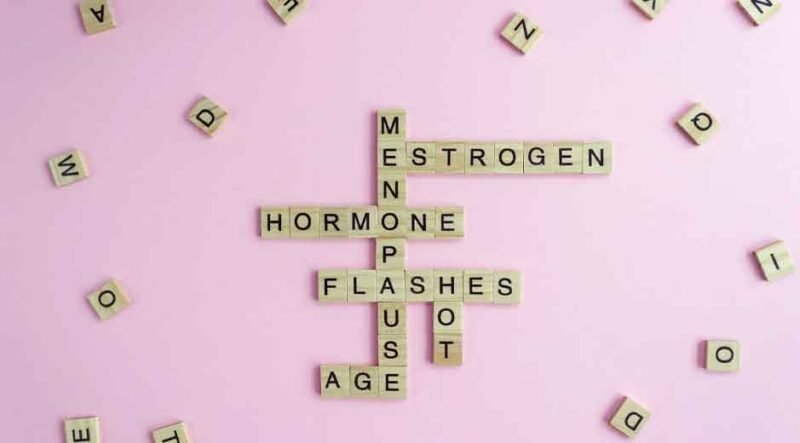Menopause is a natural transition, but for many women, it arrives with a series of unexpected physical and emotional shifts. While hot flashes and night sweats often dominate the conversation, science is revealing a more complex picture—one that includes the gut, the immune system, and the microbiome as key players in this life stage.
Understanding the biological changes that accompany menopause, and how they affect your internal ecosystem, can empower women to take charge of their health in more personalized and proactive ways.
Estrogen and the Gut: A Delicate Dance
Estrogen does far more than regulate the reproductive cycle. It has direct influence on brain function, cardiovascular health, bone density, and—critically—the composition of gut and vaginal microbiota. As estrogen levels decline, so does the body’s ability to sustain certain populations of beneficial bacteria.
This hormonal shift often leads to:
- Decreased diversity in the gut microbiome
- Increased inflammation and oxidative stress
- Weakened mucosal barriers, raising risk of infection
- Changes in metabolism and weight regulation
These changes can manifest as digestive discomfort, fatigue, anxiety, weight gain, and even cognitive fog. What may appear as isolated symptoms often share a common root in microbial imbalance.
The Vaginal Microbiome: An Overlooked Ally
Just as the gut experiences disruption during menopause, so too does the vaginal microbiome. This internal ecosystem, predominantly populated by Lactobacillus species in premenopausal women, relies on estrogen to thrive. Estrogen stimulates glycogen production in vaginal cells, feeding the bacteria that maintain a healthy, acidic pH.
Postmenopause, this balance is challenged. As Lactobacillus levels drop, women may experience dryness, irritation, increased urinary tract infections, and discomfort during sex. These aren’t merely nuisance symptoms—they reflect systemic microbial shifts and declining immune protection.
Recent studies have shown that oral or vaginally applied probiotics can help recolonize the vaginal tract with protective strains, potentially reversing these imbalances.
Why the Microbiome Matters During Menopause
The human microbiome is deeply interconnected with immune signaling, hormone metabolism, and neurological function. During menopause, its stability becomes even more critical.
Researchers have found that probiotics can offer support in key areas:
- Digestive regularity and nutrient absorption
- Immune system modulation
- Inflammation reduction
- Mental health and emotional resilience
For instance, one study published in Nutrients observed improvements in inflammatory markers, lipid metabolism, and cognitive function in postmenopausal women who took targeted probiotic blends.
Another study demonstrated the influence of gut bacteria on bone density and calcium metabolism—a crucial factor in postmenopausal osteoporosis prevention.
What Makes a Probiotic Effective?
Not all probiotics are created equal. Effectiveness depends on the strain, delivery method, and ability to survive the digestive tract and reach the targeted area.
For menopausal support, the most promising strains include:
Lactobacillus plantarum – for gut lining protection and inflammation modulation
Bifidobacterium lactis – to support digestion and immunity
Lactobacillus gasseri – with potential benefits for fat metabolism and vaginal flora
An effective supplement should also provide transparency around CFU counts (colony-forming units), strain specificity, and whether the product is third-party tested for stability.
Supporting the Microbiome Through Lifestyle
While supplements can help restore microbial harmony, lifestyle plays a foundational role in sustaining it. Key areas of focus include:
- Diet: A diverse, fiber-rich diet feeds beneficial bacteria. Foods like garlic, onions, artichokes, and oats provide prebiotics—fuel for good microbes.
- Movement: Regular exercise supports both metabolic and microbial health, particularly strength training for bone density and low-impact aerobic activity for circulation.
- Stress Management: Chronic stress disrupts the gut-brain axis and contributes to microbiome dysbiosis. Practices such as breathwork, mindfulness, and restorative yoga can calm the nervous system and support microbial balance.
- Sleep: Quality sleep helps regulate cortisol, appetite, and insulin—all of which affect gut health.
These habits not only support menopause resilience but also contribute to long-term protection against age-related disease.
A New Narrative for Women’s Midlife Health
In the past, menopause was approached reactively—often through medications aimed at suppressing symptoms. Today, science is offering a more integrative narrative, one that centers on body literacy and systems-level support.
Women are no longer satisfied with band-aid solutions. They want to understand the “why” behind their symptoms, and they want tools that work in harmony with their biology. Microbiome-centered care is helping fill that gap, bridging science and self-awareness.
By nurturing internal ecosystems, women can reclaim a sense of vitality, mental clarity, and hormonal peace—turning midlife into a chapter of expansion rather than decline.
To explore clinically supported solutions that help restore microbial balance, promote vaginal health, and support digestion during menopause, visit website for more details.







